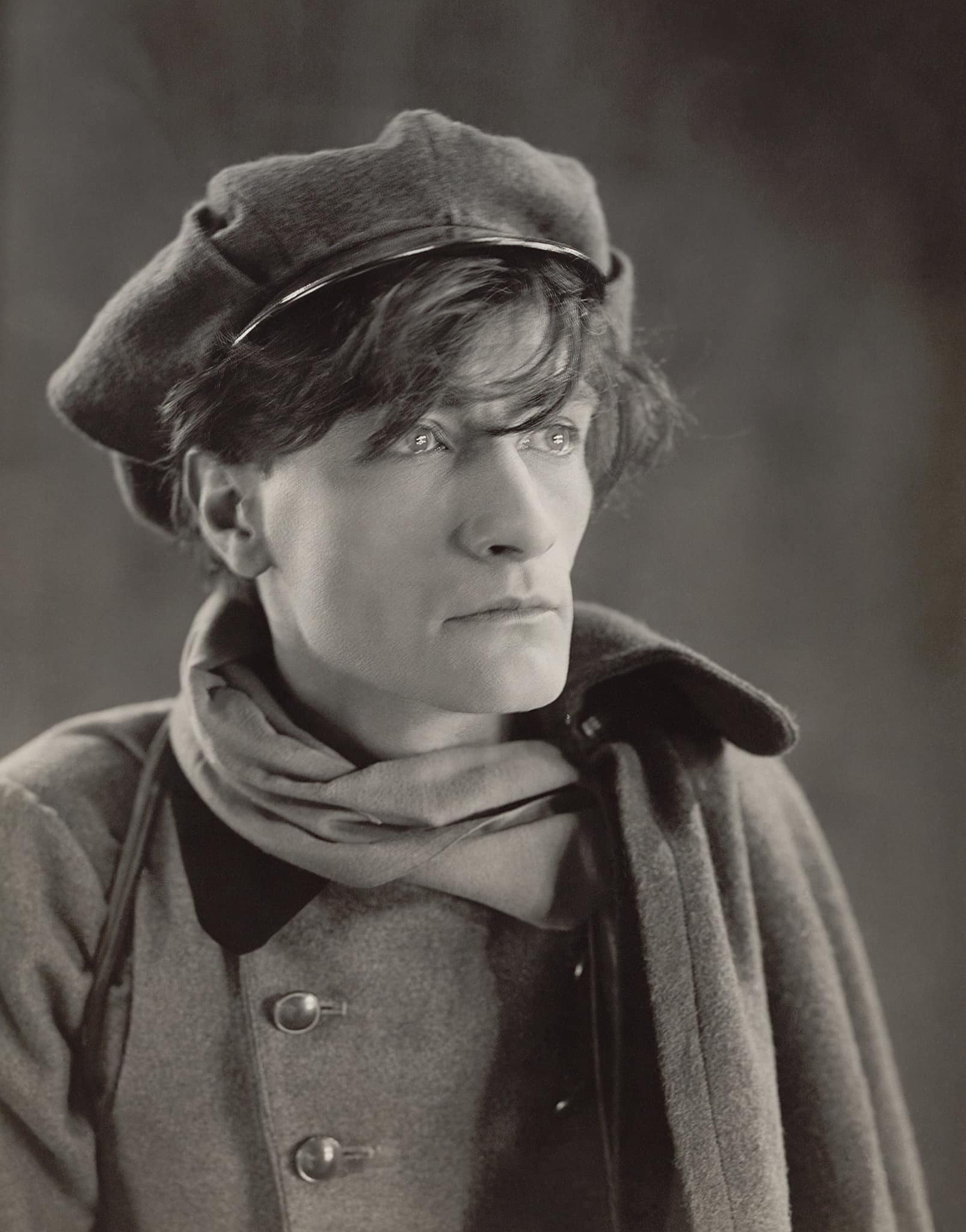Blog

President John F. Kennedy is seen riding in motorcade approximately one minute before he was shot in Dallas, Tx., on Nov. 22, 1963. In the car riding with Kennedy are Mrs. Jacqueline Kennedy, right, Nellie Connally, left, and her husband, Gov. John Connally of Texas. (AP Photo/Jim Altgens)
It haunts this cosmic close-up of the eastern Veil Nebula. The Veil Nebula itself is a large supernova remnant, the expanding debris cloud from the death explosion of a massive star. While the Veil is roughly circular in shape and covers nearly 3 degrees on the sky toward the constellation of the Swan (Cygnus), NGC 6995, known informally as the Bat Nebula, spans only 1/2 degree, about the apparent size of the Moon. That translatesto 12 light-years at the Veil’s estimated distance, a reassuring 1,400 light-years from planet Earth. In the composite of image data recorded through narrow band filters, emission from hydrogen atoms in the remnant is shown in red with strong emission from oxygen atoms shown in hues of blue. Of course, in the western part of the Veil lies another seasonal apparition: the Witch’s Broom Nebula.

more...
Biréli Lagrène (born 4 September 1966) is a French jazz guitarist who came to prominence in the 1980s for his Django Reinhardt–influenced style. He often performs in swing, jazz fusion, and post-bop styles.
Lagrène was born in Soufflenheim, Alsace, France, into a Romani family and community. His father and grandfather were guitarists, and he was raised in the Gypsy guitar tradition. He started playing at age four or five and by seven was improvising jazz in a style similar to that of Django Reinhardt, whom his father admired and wanted his sons to emulate. In 1980, while in his early teens, he recorded his first album, Routes to Django: Live at the Krokodil (Jazzpoint, 1981).
During the next few years, Lagrène toured with Al Di Meola, Paco de Lucía, and John McLaughlin, all of them guitarists, and played with Benny Carter, Benny Goodman, and Stéphane Grappelli. He joined Larry Coryell and Vic Juris in New York City for a tribute to Reinhardt in 1984 and went on tour with Coryell and Philip Catherine. He also performed with Jaco Pastorius, Stanley Clarke, the Gil Evans Orchestra, Christian Escoudé, and Charlie Haden. In 1989 he performed in a duo with Stanley Jordan.
more...David Liebman (born September 4, 1946 Brooklyn, NY) is an American saxophonist, flautist and jazz educator. He is known for his innovative lines and use of atonality. He was a frequent collaborator with pianist Richie Beirach.
In June 2010, he received a NEA Jazz Masters lifetime achievement award from the National Endowment for the Arts (NEA). David Liebman was born in 1946 into a Jewish family in Brooklyn, New York. As a child in 1949, he contracted polio.
more...
Anderson Meade “Lux” Lewis (September 4, 1905 – June 7, 1964) was an American pianist and composer, remembered for his playing in the boogie-woogie style. His best-known work, “Honky Tonk Train Blues“, has been recorded by many artists.
Lewis was born in Chicago, though some sources state Louisville, Kentucky, on September 4, 1905 (September 3 and 13 have also been cited as his date of birth in sources). In his youth he was influenced by the pianist Jimmy Yancey.
more...Darius Milhaud (French: [daʁjys mijo]; 4 September 1892 – 22 June 1974) was a French composer, conductor, and teacher. He was a member of Les Six—also known as The Group of Six—and one of the most prolific composers of the 20th century. His compositions are influenced by jazz and Brazilian music and make extensive use of polytonality. Milhaud is considered one of the key modernist composers. A renowned teacher, he taught many future jazz and classical composers, including Burt Bacharach, Dave Brubeck, Philip Glass, Steve Reich, Karlheinz Stockhausen and Iannis Xenakisamong others.
more...
Although the shape is unusual, the type of structure is not: it is part of an evolving solar prominence. Looping magnetic fields on the Sun channel the flow of energetic particles, sometimes holding glowing gaseous structures aloft for months. A prominence glows brightly because it contains particularly hot, dense, or opaque solar plasma. The surprising triangular structure occurred last week. Larger than our Earth, the iconic prominence was imaged by several solar photographers and documented by NASA’s Solar Dynamic Observatory to form and violently dissipate in about a day. The featured image was captured in a color of red light emitted strongly by hydrogen. Below, solar fibrils carpet the Sun’s chromosphere, while the background sky is so faint in comparison that no stars are visible. Our Sun’s surface has been quite active this year.

more...
Dorothy Masuka (3 September 1935 – 23 February 2019) was a Zimbabwe-born South African jazz singer.
Masuka’s music was popular in South Africa throughout the 1950s, but when her songs became more serious, the government began questioning her. Her song “Dr. Malan,” mentioning difficult laws, was banned and in 1961 she sang a song for Patrice Lumumba, which led to her exile. This exile lasted 31 years in total during which she lived in Zambia and worked as a flight attendant. She returned to Zimbabwe in 1980 after independence.
In August 2011, Dorothy Masuka and Mfundi Vundla, creator of the popular South African soap opera Generations, confirmed plans to make a film of Masuka’s life. The film would concentrate on the years 1952 to 1957.
On 27 April 2017 she featured in the concert “The Jazz Epistles featuring Abdullah Ibrahim & Ekaya,” at The Town Hall, New York City, opening the show and delivering “one passionate performance after another, warming up and winning over the crowd”.
Dorothy Masuka died in Johannesburg on 23 February 2019, at the age of 83.
more...Granville William “Mickey” Roker (September 3, 1932 – May 22, 2017) was an American jazz drummer.
Roker was born into extreme poverty in Miami to Granville (Sr.) and Willie Mae Roker. After his mother died (his father never lived with them), when he was only ten, he was taken by his grandmother to live in Philadelphia with his uncle Walter, who gave him his first drum kit and communicated his love of jazz to his nephew. He also introduced the young Roker to the jazz scene in Philadelphia, where drummer Philly Joe Jonesbecame Roker’s idol.
In the early 1950s, he began to gain recognition as a sensitive yet hard-driving big-banddrummer. He was especially favored by Dizzy Gillespie, who remarked of him that “once he sets a groove, whatever it is, you can go to Paris and come back and it’s right there. You never have to worry about it.”[4] Roker was soon in demand for his supportive skills in both big-band and small-group settings.
While in Philadelphia he played with Jimmy Oliver, Jimmy Heath, Jimmy Divine, King James and Sam Reed before moving to New York in 1959, where his first gigs were with Gigi Gryce, Ray Bryant, Joe Williams, Junior Mance, Nancy Wilson and the Duke Pearson big band.
In 1965 Mickey joined Art Farmer and Benny Golson’s revamped group, the “New York Jazz Sextet”.
In 1992, he replaced Connie Kay in the Modern Jazz Quartet.
He recorded with Dizzy Gillespie, Sonny Rollins, Duke Pearson, Tommy Flanagan, Ella Fitzgerald, Zoot Sims, Horace Silver, Junior Mance, Sarah Vaughan, Milt Jackson, Herbie Hancock, Phil Woods, Oscar Peterson, Ray Brown, Bucky Pizzarelli, Stanley Turrentine, Toshiko Akiyoshi, Hank Jones, Bobby Hutcherson, Joe Locke, and many other jazz musicians.
more...Freddie King (September 3, 1934 – December 28, 1976) was an American bluesguitarist, singer and songwriter. He is considered one of the “Three Kings of the Blues Guitar” (along with Albert King and B.B. King, none of whom was a blood relative).Mostly known for his soulful and powerful voice and distinctive guitar playing, King had a major influence on electric blues music and on many later blues guitarists.
Born in Gilmer, Texas, King became acquainted with the guitar at the age of six. He started learning the guitar from his mother and his uncle. King moved to Chicago when he was a teenager; there he formed his first band the Every Hour Blues Boys with guitarist Jimmie Lee Robinson and drummer Frank “Sonny” Scott. As he was repeatedly being rejected by Chess Records, he got signed to Federal Records, and got his break with single “Have You Ever Loved a Woman” and instrumental “Hide Away“, which reached number five on the Billboard magazine’s rhythm and blues chart in 1961. It later became a blues standard. King based his guitar style on Texas blues and Chicago bluesinfluences. The album Freddy King Sings showcased his singing talents and included the record chart hits “You’ve Got to Love Her with a Feeling” and “I’m Tore Down”.[3] He later became involved with producers who were more oriented to rhythm and blues and rock and was one of the first bluesmen to have a multiracial backing band at performances.
He was inducted into the Rock and Roll Hall of Fame by ZZ Top in 2012 and into the Blues Hall of Fame in 1982. His instrumental “Hide Away” was included in the Rock and Roll Hall of Fame’s list of “500 Songs that Shaped Rock“. He was ranked 19th in the Rolling Stone magazine’s 2023 edition of 250 greatest guitarists of all time.
more...John Len Chatman (September 3, 1915 – February 24, 1988 Memphis, TN), known professionally as Memphis Slim, was an American blues pianist, singer, and composer. He led a series of bands that, reflecting the popular appeal of jump blues, included saxophones, bass, drums, and piano. A song he first cut in 1947, “Every Day I Have the Blues“, has become a blues standard, recorded by many other artists. He made over 500 recordings. He was posthumously inducted into the Blues Hall of Fame in 1989.
more...More Posts
- Ben Webster
- World Music Bab L’ Bluz
- Daily Roots Jacob Miller and King Tubby
- Cosmos IC 405/410
- Diana Ross
- Lee Tabackin
- Donald Bailey
- James Moody
- Rufus Thomas
- World Music Érol Josué
- Daily Roots Dennis Brown
- Cosmos NGC 2237
- Elton John
- Aretha Franklin
- Paul Motian
- Cecil Taylor
- Béla Bartók
- STOP THE WAR World Music DakhaBrakha
- RHYTHM ROOTS WORKSHOP Residency Lincoln Elementary Performance Day
- Cosmos C/2022E3(ZTF)

